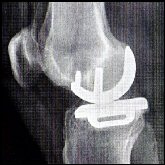 Michael Pollack of Rocket Fuel Labs
Michael Pollack of Rocket Fuel Labs
Verbatim – John Jonelis
I always enjoy the scenic water taxi ride to the Chicago Merchandise Mart where the huge high-tech incubator known as 1871 lives and breathes like a sleeping dragon in a cave full of gold.
Michael Pollack, CEO of Rocket Fuel Labs is waiting for me. His firm provides the technology to launch new companies.
Turns out, I’m in for a treat—a conversation with a genuine thought leader. Mike is a highly intelligent man exploding with enthusiasm. I get the preliminaries out of the way, then sit back and simply say:
“Tell me about Rocket Fuel Labs.”
.
Mike – Let me take a step back and give you some background on myself and Lance Ennen, then how Rocket Fuel came together.
In my career, I’ve lived at the intersection of sales and technology. I started my first business when I was 12 or 13—I was building and selling computers. I used my mom’s credit card and bought a tremendous amount of individual pieces of hardware. This is in the early 90’s, at a time when a desktop computer is about $4,000 to $5,000.

Michael Pollack
Note – Not only does Pollack organize his thoughts, they burst forth at a phenomenal rate of speed.
John – I personally bought a computer for $5,000 about that time. And it seemed real pricey a year later.
Mike – Okay, so there you go. My competition, Gateway, was charging $5,000. I, as the kid down the street, was charging about $4,500. I was making great money on that. The margins were phenomenal. I was 12 years old and that was more money than I knew existed in the world, right? That was such a tremendous sum.
And I learned a fascinating lesson in my life and my career as well. I was buying all this equipment and keeping it in my room. Stacks of motherboards, processors, video cards, cases, and all the pieces. I’d say, hey, you want a new computer? I’ll build it for you and be your free tech support. It was great. It was a very good business.
But it was right around that summer when Dell said, “We’re gonna do a back-to-school special and cut the price down from $5,000 to $3,000.” My margins went completely upside down and I learned a very important lesson about managing your inventory properly. I had all this stuff that was bought at the wrong price. My prices couldn’t sustain a market, and that was the first lesson I learned about keeping as lean as possible. All those profits I made on the first five or six computers I lost on the following nine or ten. At that point I said, “Wow, this is a tough business. Michael Dell is killing me.” As a twelve-year-old, I just couldn’t compete with what he was doing in Texas and so it was an important lesson.
From there I did programming for a bit. As a kid I took things apart. Vacuum cleaners, VCRs, anything I could find. I had great parents. They gave me a tremendous amount of opportunity and I probably took advantage of it a little too much when I was younger. Maturity is recognizing your mistakes and operating within those bounds.
John – Just like Richard Feynman. As a kid, he made a business of taking apart radios and fixing them. I used to read his books to my son as bedtime stories.
Mike—Richard Feynman is a personal hero! I think he’s an absolutely fascinating man. An important physicist of enormous stature. His books, Surely You’re Joking Mr. Feynman and What Do You Care What Other People Think both make for great reading.
Note – It seems that Pollack is not only brilliant, but well-read.
Mike – I started a number of businesses and my personality pulled me in the direction of sales but I could also understand technology. As a kid, I did everything from sell Cutco knives door-to-door to being a PC tech at Best Buy.
But my career moved into an interesting avenue. A very good family friend started a freight brokerage. If you know people that work at C. H. Robinson or Echo Global Logistics—these companies that manage the trucks that you see on the road—it’s a really big business, and it’s a business that most people don’t think about.
Consider this room. Everything gets here by truck, right? In America, the domestic trucking industry is $300 Billion.
$60 Billion—with a “B”—of that goes to domestic truckload brokers. To walk you through that world, there are about 3-4 Million full truckload shippers. These are the manufacturers who put stuff inside of trucks. Take the company that manufactures this couch, for instance.
On the other end of the equation, there’s a hundred thousand trucking companies. Ninety six percent of those companies operate 10 or less trucks. A lot of mom-and-pop outfits. There’s those big orange trucks you see on the road from Schneider or J. B. Hunt or Werner or Swift, but those big companies are actually in the minority. Only about a hundred of them.
In the middle, there’s fourteen and a half thousand brokers. Those brokers consume that $60B and effectively, those brokers are like glorified travel agents.
John – They’re routing all the trucks. Are they making all the money?
Mike – Not all of it, but a lot of it. Very little overhead. They’re doing this mostly over phones. It’s an old-fashioned travel agency model.
I started as a salesman and realized our tracking software just wasn’t very good. You need to make sure you assign the right truck and get the best price. Then when the truck is actually moving, make sure it gets from Point A to Point B. If the truck encounters an issue, it needs some way to facilitate that.
So we designed a software platform called Autobahn, which was a freight brokerage trading system. The name invoked something sexy, like a Mercedes Benz cruising down the highway at high speed when in reality we’re moving trucks around the country.
John – Did you know that the German Autobahn helped us win WWII?
Mike – Yes, it’s interesting. When you read Eisenhower’s memoirs, one of the things he’s most proud of is the Eisenhower interstate highway system, which is a direct replica—a rip-off—of what he saw in the Autobahn.
Note– Once again, I’m taken aback by Pollack’s intellect and enthusiasm.
John – He did that?
Mike – That’s correct. He saw the Autobahn and said, “Wow, the ease in which we could move through the country—the effectiveness of their mass transit system was so eye-opening…One of my first initiatives when I come back to America will be the Interstate Highway System.”
I worked on logistics for a long time and know a couple facts about the highway system that will blow your mind.
1.) The reason bridge heights are set at thirteen and a half feet, is that at the time, in the 50’s, the United States had nuclear mobile-launched missiles. That was the height at which they had to be to get under the bridge and that’s where bridge heights come from to this day in America.
2.) The other thing that was mandated was for every ten-mile stretch of highway, there had to be a one-mile strip of straight highway so in the event that airfields all got destroyed by nuclear war, we could land airplanes on the highway.
Pretty clever, actually, how they did it. It’s a really well thought out bit of technology. It’s a fascinatingly cutting-edge technology for the 50’s. It’s infrastructure. Like a platform. Like we do software now.
Think about that. What I find fascinating about logistics in particular is that good infrastructure is, effectively, a platform. And you can build on it. If you think about the highway system in this country, it provided the platform on which McDonalds could provide roadside dining. Hilton and Marriot could build massive hotel chains.
When I think about that infrastructure, I think about our business; I think about Rocket Fuel Labs. It’s about providing technology infrastructure to allow businesses to build on. That’s where I get really excited about what we’re doing here.
Note – I don’t know how you readers feel about it, but I find this conversation fascinating and don’t want to shred a single paragraph. I’ll pick up where we left off in a future article. Verbatim.
.
Contacts
Rocket Fuel Labs
- Specialties – Startups
- Industry – Computer Software
- Type – Privately Held
- Company Size – 1-10 employees
- Founded 2013
- Expertise – Web Development & Deployment, UI/UX, Online Marketing, Product architecture, E-Commerce.
- Headquarters – 222 W Merchandise Mart Plaza #1212 Chicago, IL 60654 United States
- Website – RocketFuelLabs.com
- Email – Info@RocketFuelLabs.com
- Phone – 855-4FR-LABS
- Fax – 312-620-9655
Photos courtesy Rocket Fuel Labs, NASA, LinkedIn, Amazon.com
.
.
Chicago Venture Magazine is a publication of Nathaniel Press www.ChicagoVentureMagazine.com Comments and re-posts in full or in part are welcomed and encouraged if accompanied by attribution and a web link . This is not investment advice. We do not guarantee accuracy. It’s not our fault if you lose money.
.Copyright © 2013 John Jonelis – All Rights Reserved
.
.










































































































































































Pingback: 4 STAGES OF DEVELOPMENT | Chicago Venture Magazine
Pingback: 4 STAGES OF DEVELOPMENT | The Gamemaker's Father
Pingback: 4 STAGES OF DEVELOPMENT | SoshiTech
Pingback: TAKING IT APART | Chicago Venture Magazine
Pingback: TAKING IT APART | The Gamemaker's Father
Pingback: THE LEAN STARTUP | Chicago Venture Magazine
Pingback: THE LEAN STARTUP | SoshiTech
Pingback: THE LEAN STARTUP | The Gamemaker's Father
While charging the touchscreen technology phone, it syncs
on top of your PC. Once you definitively answer that question, you can build a new,
updated strategy from there-before you’re making any investments that could or may
‘t be as focused and efficient as they should be. One number of speakers keep a clean and
accurate sound, as the second group reproduces the sound with “color”.
If your hose is too short, or you want a longer power cable,
you can probably get replacements, rather than having
to buy a new cleaner. For electric ovens check the elements
and wipe over. A sternum clip also assists in giving
you more support.
Visit to purchase Computer Cuisine Deluxe for $29. Certainly,
this does not signify that you should go out and buy the cheapest cookware collection that you can
get. The storage of the pans is far easier when you may have this potential at your disposal.
I’d like to find out more? I’d like to find out some additional information.
They are extremely convenient and also provide surprisingly adequate
audio quality for the price. There are various speaker stands being sold inside the market these days, so here
are tricks to guide you in trying to find the best speaker stand to buy.
If you don’t have a receiver, it is extremely impossible that it
is possible to have the equivalent quality of audio performance or simply the capacity to control the entertainment gadgets like DVD players, radio and
television.